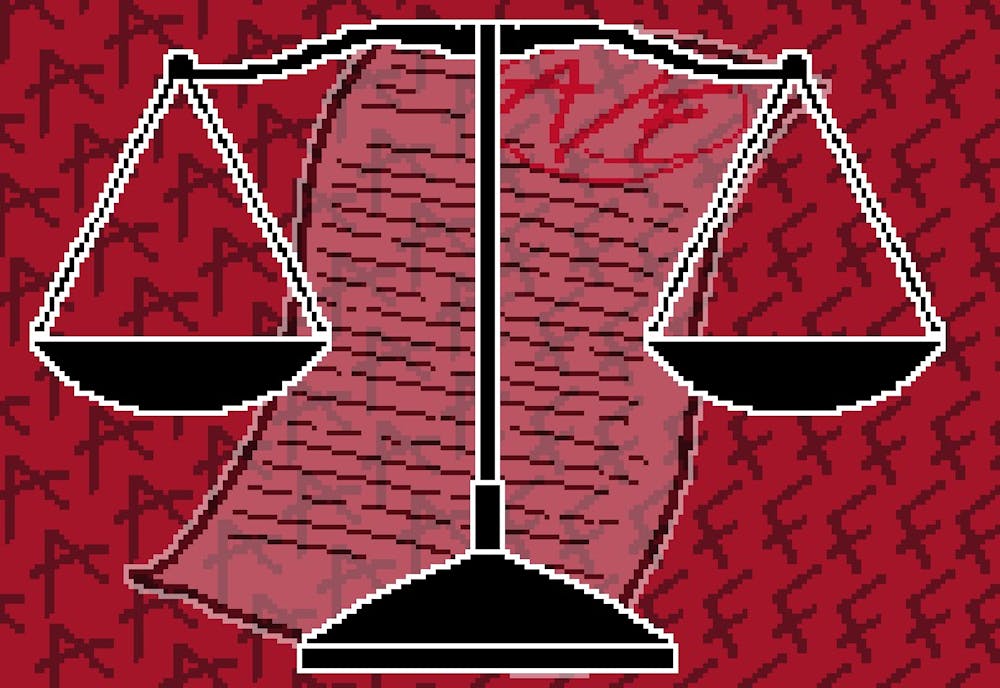Students and faculty are calling on ASU to give students the choice to be graded on a pass/fail system in response to classes switching online due to COVID-19, the disease caused by the novel coronavirus, but the University has said that an overarching policy is not needed.
The Undergraduate Student Government Tempe unanimously passed a resolution on March 31 asking University instructors to consider implementing a pass/fail grading system to their classes this semester.
"The Undergraduate Student Government Tempe, representing all undergraduate Tempe campus students, publicly asserts and affirms support for students to have the choice to opt-in to pass/fail grading support for Spring 2020 classes," Senate Resolution 19 states.
A University spokesperson said in an email to The State Press that pass/fail or a "university-wide change in our grading policy" is not needed, and said some students need their grades for things such as "competitive entry" into graduate school, professional programs or the workforce.
"There are large numbers of students that are working hard and want to receive their final grade," the University spokesperson said. "We do not feel it is appropriate to take that opportunity away from those students while we have other mechanisms in place for students to work with professors on an individual basis."
Instead, individual professors are encouraged to do what's best for their classes.
"Professors have the ability to adjust deadlines for assignments, give incompletes, or provide a 'Y' grade, which connotes satisfactory," a University official said.
Students are encouraged to reach out to their professors if they would like to change their grades to pass/fail, a University official said.
ASU currently remains the only institution under the Arizona Board of Regents that has not already implemented a pass/fail system for the semester. UA announced its decision on March 20, and NAU followed with its own on April 2.
Derek Baranski, a senator for the W. P. Carey School of Business and appropriations committee co-chair for USGT, said he expected the University to change policies in order to assist students experiencing immense challenges and change during the COVID-19 pandemic.
"You want to provide students ample opportunity to learn, but also ample opportunity for students to get through their classes," said Baranski, a junior studying business law. "The reality is some students don't learn as well in these environments."
USGT conducted a survey in March, reaching over 1,500 students. The survey asked for feedback on how students have been handling changes due to the pandemic and the University's response to online classes, meal plans, housing and parking.
When asked how their transition to online classes has been, the majority of students who responded ranked their transition to classes as a two or three on a five-point scale, with one being extremely difficult and five being extremely good. Only 3% of respondents said their experience has been extremely good, results showed.
"We have students with all sorts of different financial circumstances, students of all creeds and backgrounds that are being affected by this differently," Baranski said of the survey results. "I think that by not having a policy that addresses that, you're really discounting the students that are really struggling with this right now."
The survey also asked students to rate on a scale of one to five whether professors should provide a curve to their classes, and 70.2% of respondents selected five, saying it is very necessary that professors provide a grading curve.
One student responded to the survey expressing the difficulty of continuing online with classes that were designed to be hands-on.
"I don’t want to fail a class because of this challenge," they said.
Students have also voiced their concern through online petitions that call on the University to implement this new grading policy.
Samantha Sabbara, a sophomore studying genetics, made a petition asking the University to place a curve on all classes. In just one month, the petition has gained over 17,000 signatures.
Sabbara thinks the University should make this change because it would prioritize students.
"They are really trying to prepare, but I think just adjusting the grades a little bit would be a great thing for them to do to just kind of show that they really care about health and well being in this very stressful time," Sabbara said.
Even some faculty members have asked for pass/fail to be implemented.
Associate professor Christopher Jones from the School of Historical, Philosophical and Religious Studies has called on social media for the University to allow a pass/fail option to ensure fairness for all students.
"Moving to online was the right thing to do," Jones said. "But, it is shifting the rules of the game in the middle of the game."
ASU has advised professors to work with their students during this online period, Jones said, such as giving students the option to elect pass/fail grading even if their instructors were unaware of the option.
Baranski said a pass/fail policy would relieve students from the weight of not knowing if they were going to make it through their classes due to the pandemic.
"Out of all the stressors that students are experiencing, having some grade security and knowing that things are going to be okay at the end of this, I think, will be really reassuring to a lot of students," Baranski said.
Reach the reporters at ekgalin1@asu.edu, wmyskow@asu.edu and gmlieber@asu.edu and follow @eringalindo29, @wmyskow and @G_Mira_ on Twitter.
Like The State Press on Facebook and follow @statepress on Twitter.

Wyatt Myskow is the project manager at The State Press, where he oversees enterprise stories for the publication. He also works at The Arizona Republic, where he covers the cities of Peoria and Surprise.




